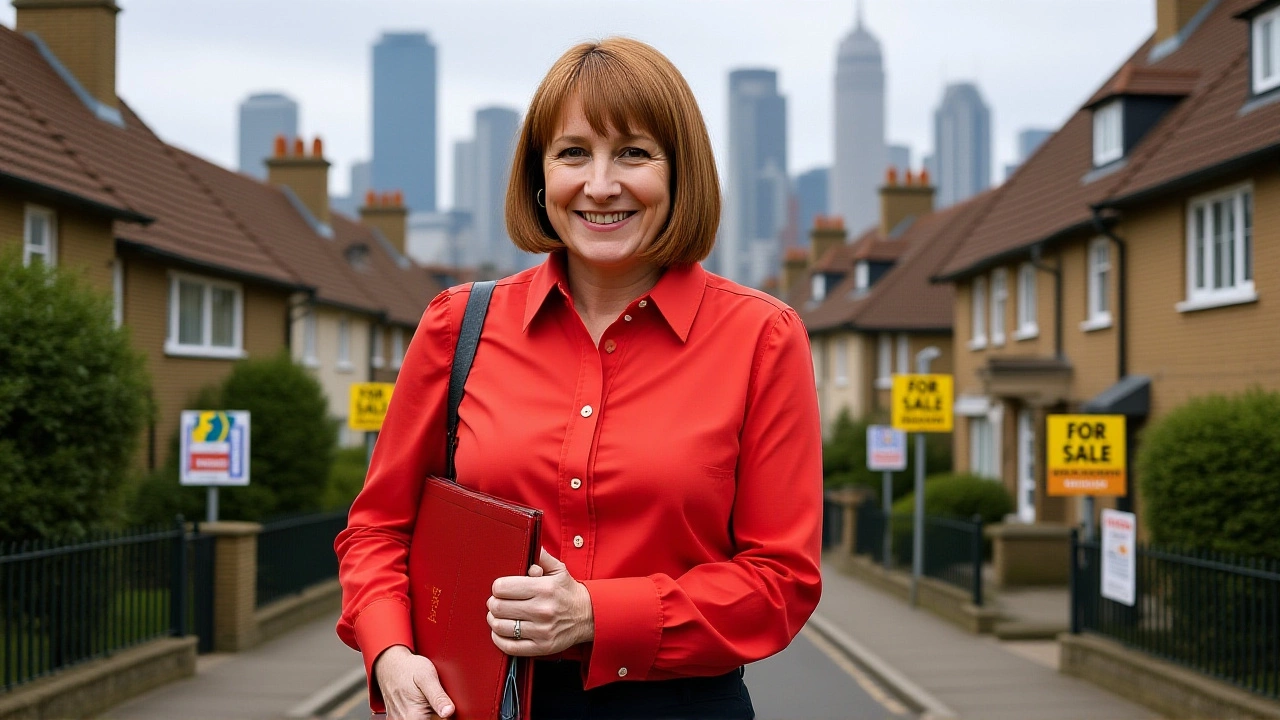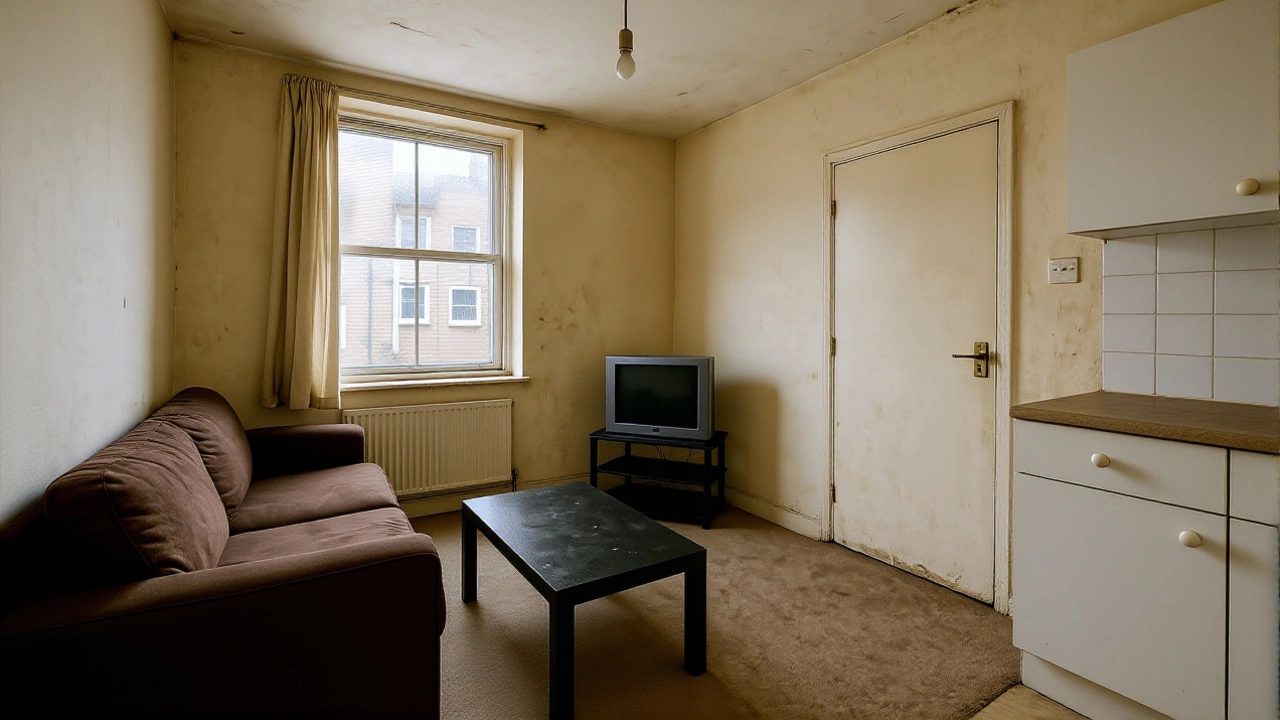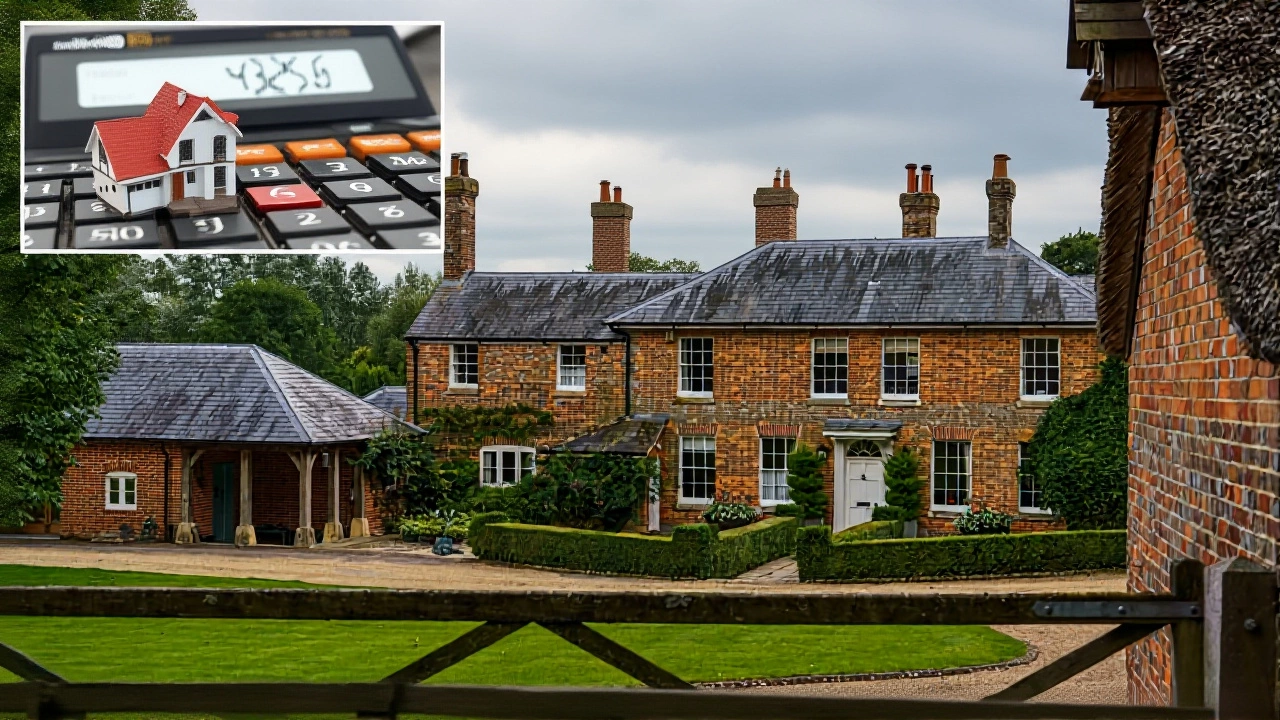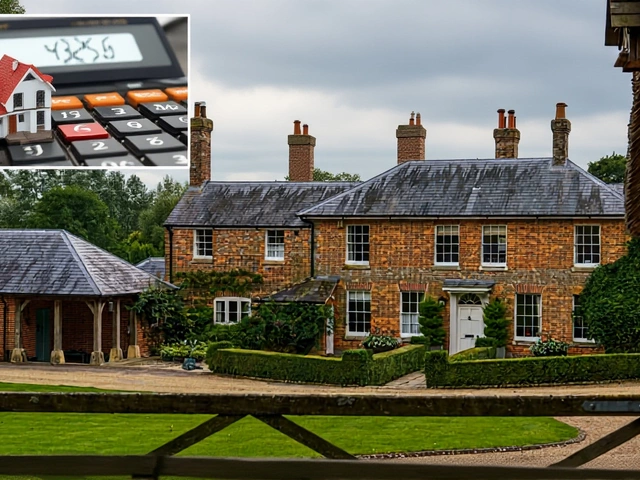Rachel Reeves to Announce £2 Million Mansion Tax in Autumn Budget 2025 Amid £40 Billion Deficit
On Wednesday, 26 November 2025, Rachel Reeves, the Chancellor of the Exchequer, is set to unveil a controversial new tax on luxury homes — a mansion tax targeting approximately 150,000 properties valued above £2 million. The move comes as the UK grapples with a £40 billion fiscal shortfall, forcing the government to choose between painful revenue-raising measures and deeper public spending cuts. The announcement, expected during the Autumn Budget 2025, will mark one of the most politically charged fiscal decisions in a decade — and it’s already stirring outrage in London’s wealthiest boroughs.
Three Paths, One Goal: Fixing a Broken System
According to reports from UK Property Accountants, The Telegraph, and The Standard, Reeves is weighing three distinct models. The first would scrap the long-standing Capital Gains Tax exemption for primary residences — but only for homes worth more than £1.5 million, the same threshold where the top rate of Stamp Duty Land Tax kicks in. The second, dubbed a ‘Proportional Property Levy,’ would replace both Council Tax and Stamp Duty with a single annual charge based on property value. The third, and most likely, involves hiking Council Tax rates dramatically for homes in bands F, G, and H — the top tiers — while finally revaluing every residential property in England for the first time since 1991.That’s right: the last official property valuation for Council Tax purposes in England was done on 1 April 1991. Back then, a £2 million home in Kensington was a fantasy. Today, it’s a modest three-bedroom in Belgravia. The system is broken, and the disparity is staggering. A house worth £2.3 million in 2025 might still pay the same Council Tax as a £180,000 flat in Stoke-on-Trent — because the bands haven’t moved.
London Takes the Brunt
While the £2 million threshold applies nationwide, the real firestorm is in London. The Standard reports that 600,000 London homes could be revalued under the new regime. That’s not just a few luxury penthouses — it’s entire streets in Westminster, Kensington, Chelsea, and Hampstead. Many of these properties were bought in the 2000s or early 2010s, when prices were half what they are now. Owners who never expected to sell — retirees, families who’ve lived there for decades — now face the prospect of a new annual bill that could run into thousands.‘It’s not about the rich,’ one resident of Fulham told The Standard. ‘It’s about people who bought their homes 30 years ago and thought they’d never have to pay more than £1,800 a year in local taxes. Now they’re being told they owe £12,000. That’s not fairness. That’s punishment.’
The Political Tightrope
Enter Torsten Bell, the Treasury Minister who once led the Resolution Foundation think tank. Bell, a veteran of Ed Miliband’s inner circle, is believed to be the architect behind the more progressive elements of the plan. His past research has consistently argued for wealth taxes that target assets, not just income. But here’s the catch: Reeves promised during the 2024 election not to raise income tax. So instead, she’s going after property — a move critics call a backdoor tax hike.‘Rachel Reeves said recently that Labour was elected on a commitment to put national interest before political calculation,’ wrote analyst Patrick Cannon in a 25 November 2025 report. ‘As with many things Rachel Reeves says, the opposite is true.’ He argues the mansion tax is a political workaround — a way to raise revenue without breaking a manifesto promise, even if it’s just as unpopular.

Administrative Nightmare and Market Fallout
Revaluing 27 million homes across England, Wales, and Scotland won’t be quick. UK Property Accountants warns the process could take years, cost hundreds of millions, and trigger endless appeals. The last revaluation attempt in 2007 was scrapped after public backlash. This time, the government is considering a one-time reset followed by quinquennial updates — similar to the Annual Tax on Enveloped Dwellings (ATED), which already updates every five years.Meanwhile, the high-end property market is already sluggish. Mortgage rates above 5% have frozen sales. A new annual tax on top of that? Analysts warn it could freeze the market entirely. ‘If you can’t sell your £2.5 million house without paying £30,000 extra in taxes, you don’t move,’ says a London estate agent who asked to remain anonymous. ‘You just stay put. And that means less liquidity, fewer transactions, and lower overall tax receipts — the opposite of what they want.’
Why This Matters Beyond the Wealthy
This isn’t just about £2 million homes. It’s about fairness. The current Council Tax system is a relic. A family living in a £400,000 home in Oxford pays the same as one in a £1.2 million house in Putney — because the bands are frozen in time. Reforming this could mean lower bills for millions of middle-income households if the tax burden is redistributed. But if the government simply adds a new layer on top — without cutting other taxes — it’s not reform. It’s a tax grab.Public opinion is fragile. A recent YouGov poll showed 68% of voters oppose any new taxes on housing. Yet 52% believe the wealthy should pay more. The government’s challenge? Make it feel fair — not punitive.

What’s Next?
Wednesday’s budget will be the first real test of Reeves’ leadership. Will she go with the super-rate Council Tax model — the most politically feasible but least transformative? Or will she surprise everyone with a bold, single levy that replaces multiple taxes? Either way, expect legal challenges, media storms, and a wave of homeowners scrambling to appeal their new valuations.And then there’s the long game. If this works — if the system is modernized, if revenues rise, if middle-income households see relief — it could become a blueprint for other countries. If it fails? It could become the symbol of a government that tried to fix a broken system and broke it even more.
Frequently Asked Questions
How many homes in the UK are affected by the proposed mansion tax?
Approximately 150,000 homes across the UK are estimated to be valued above the proposed £2 million threshold. Of these, around 600,000 are located in London alone, concentrated in boroughs like Westminster, Kensington, and Chelsea. The total number could rise if property revaluations push more homes into higher bands, particularly in areas where prices have surged since 1991.
Why hasn’t Council Tax been updated since 1991?
The 1991 valuation was politically explosive, and subsequent attempts to revalue — including one in 2007 — were abandoned due to public backlash and administrative complexity. Local authorities lacked the resources, and the government feared voter anger. The result? A system where property taxes bear almost no relation to today’s market values, creating deep inequities between regions and property types.
Will this tax affect middle-income homeowners?
Not directly — the £2 million threshold is meant to target only the top 0.5% of homes. But if the government replaces Council Tax with a proportional levy, middle-income households could see changes. If the new system is designed to shift burden from lower bands to higher ones, many could pay less. But if it’s simply layered on top, they’ll pay more indirectly through higher local spending pressures or reduced services.
What’s the difference between this and the existing Stamp Duty?
Stamp Duty is a one-time tax paid when buying a property — and it already hits harder above £1.5 million. The proposed mansion tax would be an annual charge, like a property tax in the US or Canada. That means even if you own your home outright and never sell, you’d still pay. It’s not about transactions — it’s about ownership of wealth.
Why is Rachel Reeves avoiding an income tax rise?
During the 2024 general election, Labour pledged not to raise income tax, national insurance, or VAT. Breaking that promise would risk alienating key voter blocs, especially in swing constituencies. By targeting property instead, Reeves aims to raise revenue without violating her manifesto — even if critics argue it’s a political dodge that still burdens households.
Could this lead to a housing market crash in London?
A crash is unlikely, but stagnation is almost certain. High-end buyers are already scarce due to high mortgage rates. An annual tax could deter foreign investors and force downsizing among older homeowners. The market may freeze, reducing transaction volumes and potentially lowering long-term prices — which could ironically reduce the tax base the government hopes to grow.







